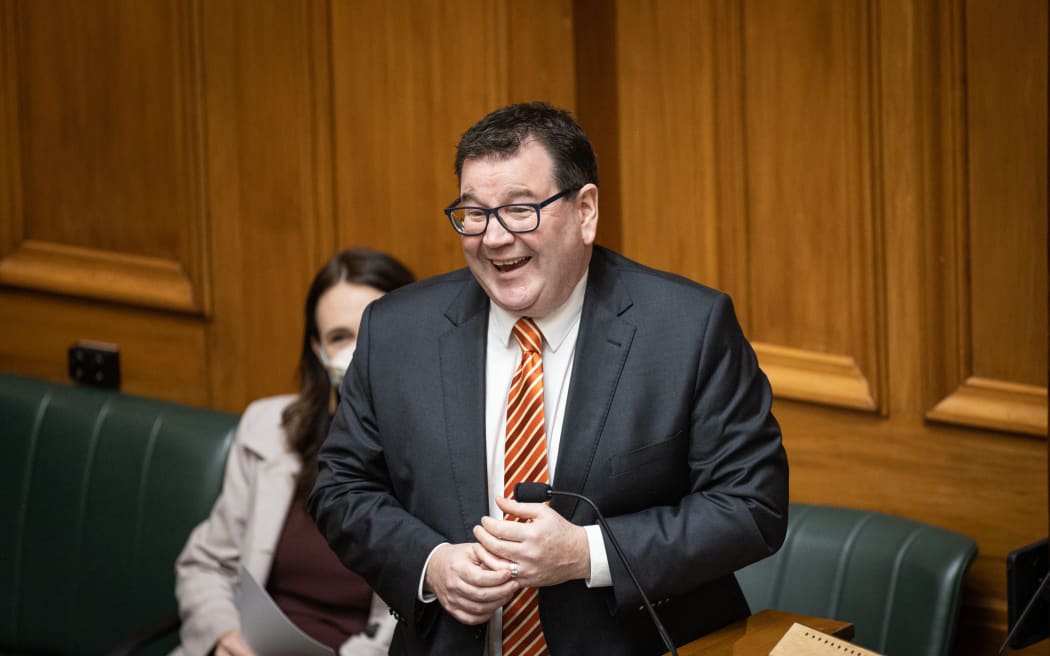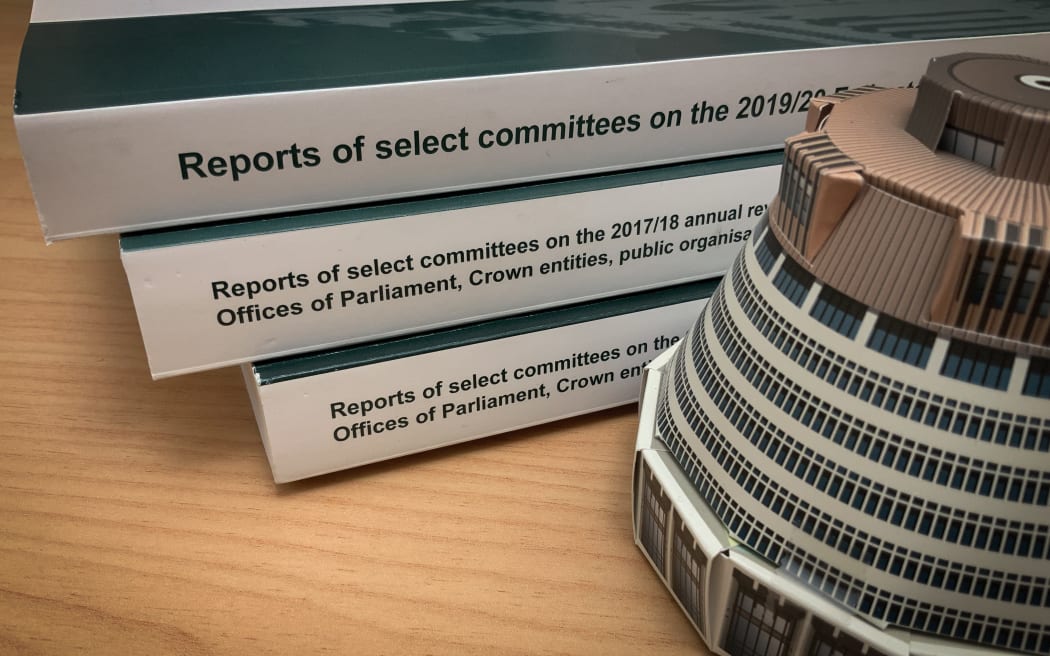In a busy and intense week at Parliament the centrepiece was likely Wednesday’s valedictory speech from former Prime Minister Jacinda Ardern. But there were many, many other things going on as well.
From the weird political sideshows (particularly two different “MP insults…” stories), to the first day of Members’ bills, to the passing of far reaching Cyclone recovery legislation akin to the empowerment given ministers during Covid. A busy week.
And amongst it all, something crucial but unexciting. The opening stanza of an annual set piece called the Annual Review Debate.

Finance Minister Grant Robertson was the minister to be grilled in the Annual Review debate this year. Photo: Phil Smith
Parliament has a number of jobs and most of them, you’ll notice, involve a lot of talking.
Parliament provides a government from amongst its members, it considers legislation (mostly bills suggested by that government), it approves both raising funds and spending funds (again carried out by government), and finally it supervises, scrutinises and criticises every aspect of that government.
Well, it tries. Government is enormous and Parliament is just a few dozen MPs for whom an aspect of their multifaceted job is to investigate the vast apparatus that is government. (Really, Parliament could do with quite a few more MPs to help keep an eye on things.)
Like any good investigator Parliament keeps a particularly close watch on the money. How it is spent, whether it is well spent, and whether the stated outcomes hoped for from that spending are effected. The annual review debate is the butt-end of that process. The but-end indeed of the entire multi-year budget cycle.
The ‘debate’ actually involves MPs questioning ministers in the debating chamber over the spending, performance and outcomes within their purviews; against the budget plans announced nearly two years ago. That’s the plan at least. In reality they often focus their question much more on ‘now’ than on ‘then’.
The debate will take 10 hours and involve the grilling of multiple ministers.

The Report of Select Committees on the 2019/20 Estimates, plus from the other end of the cycle, two volumes of Reports on Annual Reviews. Together they're nearly as tall as the 'Beehive'. Photo: VNP / Phil Smith
This end point is underpinned by a months-long inquiry process carried out by all of the specialist subject select committees. All of the committees in turn also grilled the ministers as well as dozens of managers from various departments, ministries and other kinds of crown entities.
And the outcome of that massive undertaking is a compiled report which is actually an incredibly fascinating read. No joking, it is full of things you had no idea were happening.
The first speaker in the debate (Rachel Brooking, who chairs the Finance and Expenditure Select Committee) concurs.
“Before I start with that, I would very much like to thank the staff who do these report backs to Parliament, which can be found in this volume. One, they do a great job, and if anybody is spending their Tuesday afternoon watching the House, then I would very much—if you're ever interested in what any different agency does, go and have a look at the select committee's annual report back on them.”
The compiled annual reviews are a substantial document, but sadly, as far as I can determine, they are not available online as a compiled whole, only as dozens of individual reports into the many dozens of organisations inquired into.


